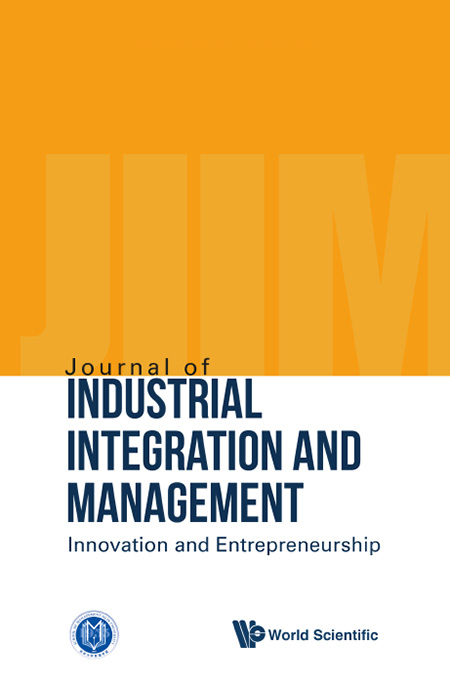Research on the Economical Influence of the Difference of Regional Logistics Developing Level in China
IF 3.3
Q2 MANAGEMENT
Journal of Industrial Integration and Management-Innovation and Entrepreneurship
Pub Date : 2020-06-01
DOI:10.1142/s2424862220500049
引用次数: 6
Abstract
Based on the model of Cobb–Douglas (CD) production function, this paper establishes a panel data regression model, and divides all provinces of China except Hong Kong Special Administrative Region, Macao Special Administrative Region and Taiwan Province into four groups according to their levels of logistics development. With the panel data of these four groups for 20 years (1997–2016), the paper analyzes the relationship between the logistics development and the economic growth in various regions in China. In this model, this paper selects the logistics capacity, the logistics investment and the logistics manpower as the three input indicators which represent the logistics development of different regions, and selects the regional GDP as the output indicator which represents economic growth. After empirical analysis, this paper finds that there is a positive correlation between logistics and economic growth, and the impact of each indicator on the regional economic growth is different. There are three conclusions in this paper. Firstly, logistics capacity has the greatest economical promotion effect on areas with advanced logistics. The second is that logistics investment has the greatest economical promotion effect on the developed and general areas of logistics development. And the third is that the economical promotion of the logistics investment and the logistics capacity is more obvious in the underdeveloped areas of logistics.中国区域物流发展水平差异的经济影响研究
本文基于Cobb-Douglas (CD)生产函数模型,建立了面板数据回归模型,并将中国除香港特别行政区、澳门特别行政区和台湾省外的各省根据其物流发展水平分为四组。本文利用这四组20年(1997-2016)的面板数据,分析了中国各地区物流发展与经济增长的关系。在该模型中,选取物流能力、物流投入和物流人力作为代表不同地区物流发展的三个投入指标,选取区域GDP作为代表经济增长的产出指标。经过实证分析,本文发现物流与经济增长之间存在正相关关系,且各指标对区域经济增长的影响程度不同。本文得出了三个结论。首先,在物流发达地区,物流能力对经济的促进作用最大。二是物流投资对物流发达地区和物流发展一般地区的经济促进作用最大。三是物流投资和物流能力的经济促进作用在物流欠发达地区更为明显。
本文章由计算机程序翻译,如有差异,请以英文原文为准。
求助全文
约1分钟内获得全文
求助全文
来源期刊
CiteScore
17.00
自引率
16.70%
发文量
31
期刊介绍:
The Journal of Industrial Integration and Management: Innovation & Entrepreneurship concentrates on the technological innovation and entrepreneurship within the ongoing transition toward industrial integration and informatization. This journal strives to offer insights into challenges, issues, and solutions associated with industrial integration and informatization, providing an interdisciplinary platform for researchers, practitioners, and policymakers to engage in discussions from the perspectives of innovation and entrepreneurship.
Welcoming contributions, The Journal of Industrial Integration and Management: Innovation & Entrepreneurship seeks papers addressing innovation and entrepreneurship in the context of industrial integration and informatization. The journal embraces empirical research, case study methods, and techniques derived from mathematical sciences, computer science, manufacturing engineering, and industrial integration-centric engineering management.

 求助内容:
求助内容: 应助结果提醒方式:
应助结果提醒方式:


